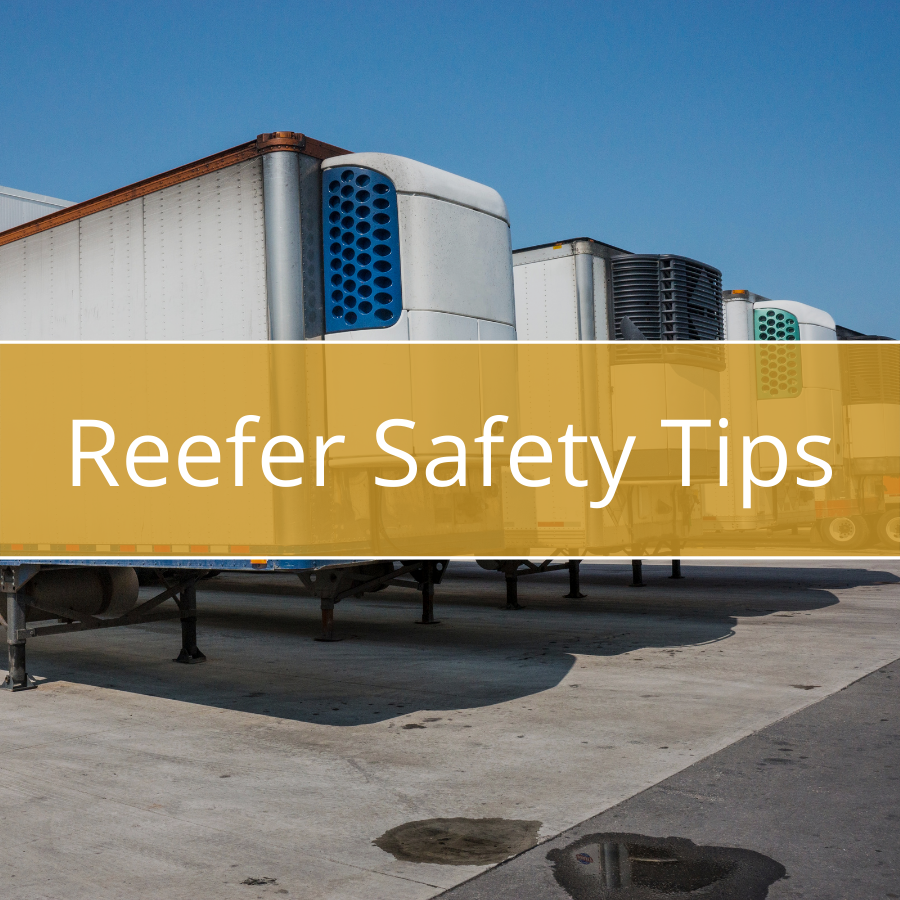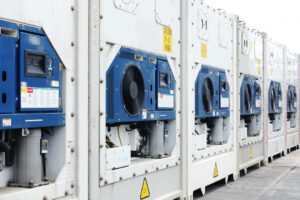Reefer Safety Tips

Brought to you by: Gold River Insurance Brokerage
Reefer trucks are essential for delivering temperature-sensitive products, whether it is perishable food, sensitive electronic equipment or medical supplies. Delivering these products safely is of the utmost importance when it comes to customer satisfaction and health. I wanted to share with you some Dos and Don’ts for reefer safety.
Important things to consider when it comes to reefer safety:
- Reefer hygiene
- Reefer/product temperature
- Fuel levels
- Ethylene gas

Properly maintaining a reefer unit is the key to delivering an undamaged product, whether it is perishable food, sensitive electronic equipment, or medical supplies. Carrying refrigerated cargo can be especially dangerous because if the trailer’s temperature gets too high or dips too low, entire loads of product could be ruined, or worse, could make people sick. Bacteria can grow on perishable items if the temperature gets above 45° F.
Make sure to follow these do’s and don’ts when it comes to working safely with reefer trailers.
• Do wash out your reefer after each load. Loads carrying meat can spread blood across the trailer floor and possibly contaminate your next load. Some warehouses will have a hose available to wash out the trailer.
• Do ask the shipper at what temperature the load should be kept. Variations of even one degree can spoil the shipment!
• Do arrive at the shipper with a full fuel tank. Some shippers may not let you haul a load with less than ¾ of a tank.
• Do pulp your load as it is being loaded. Given the sensitive nature of many reefer loads, you must keep an eye on temperature before, during and after being loaded.
• Do observe your reefer being loaded. Make sure your load is of high quality and will arrive at your destination in the same state. Log any abnormalities on the bill of lading to reduce your liability while transporting.
• Do make sure the reefer is being defrosted several times per day. Moisture can damage certain products, costing you time and money.
• Do not use a leaf blower or other blowing device to clean out the reefer. Sharp objects, such as nails or shards of wood, can be blown onto the ground below and ruin someone else’s day.
• Do not just rely on the temperature gauge. Pulp the air temperature during transit to ensure it remains consistent.
• Do not run a start/stop cycle with sensitive loads. The extra cold air from the unit starting can ruin certain products, such as flowers and produce.
• Do not let the reefer run out of fuel. Most cooling units run off a diesel generator and losing power could be very costly.
• Do not let ethylene gas ruin your load. Many green vegetables and floral products are sensitive to ethylene damage. Keep these items away from fruits, if possible.